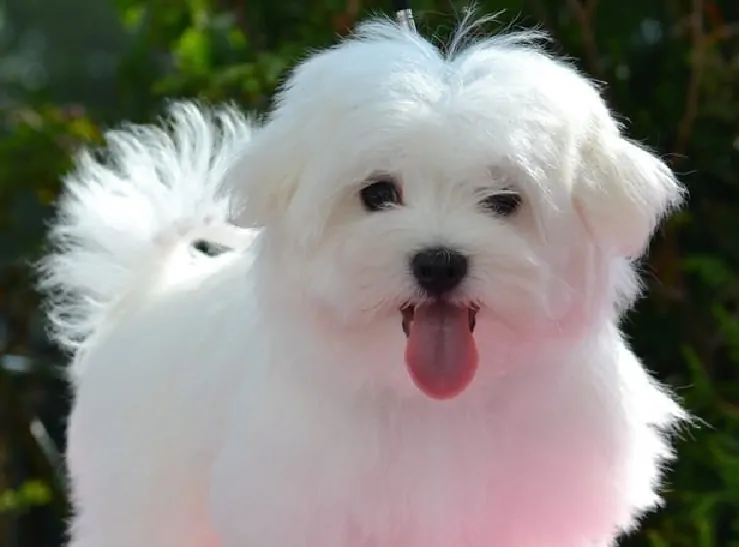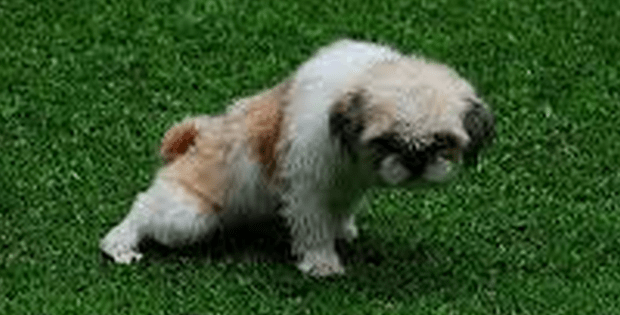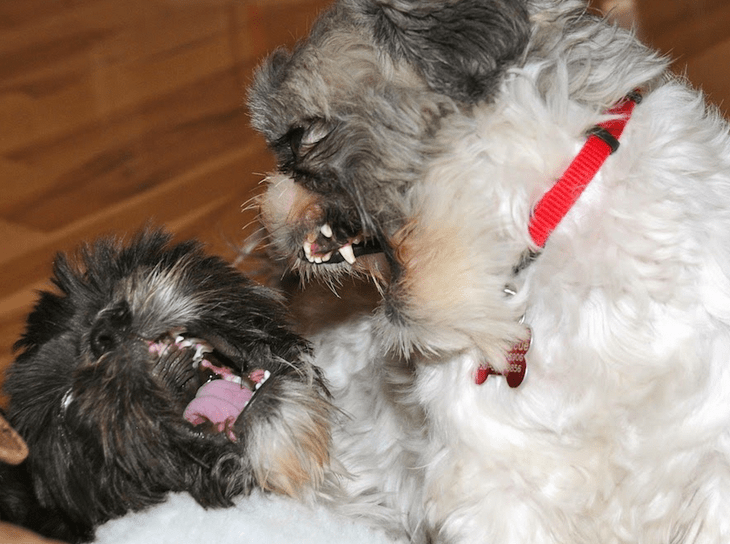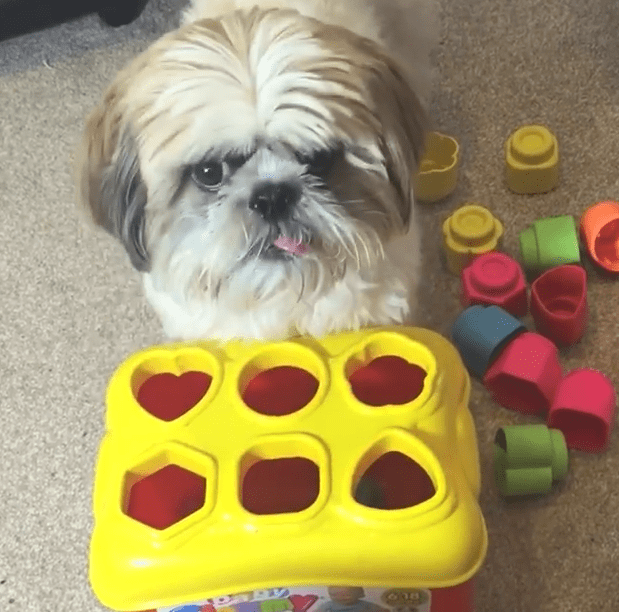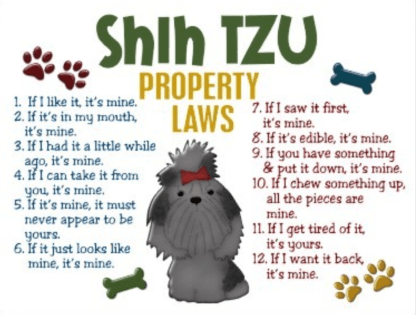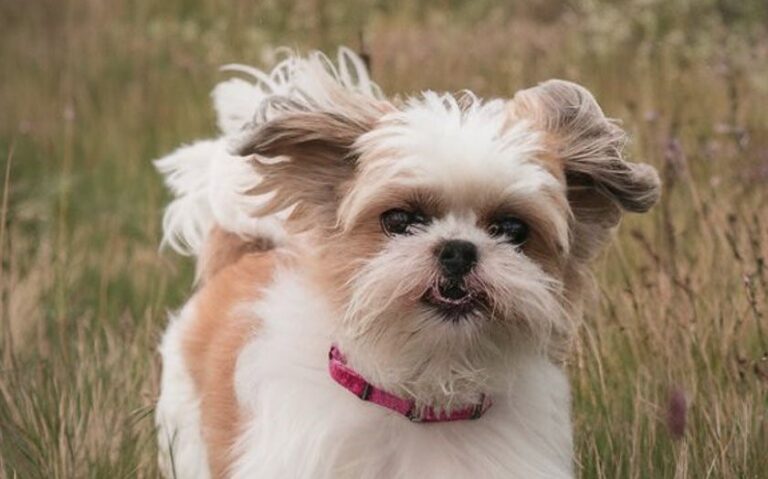Shih Tzu Aggression – Steps How To Correct It
Your Shih Tzu is extremely friendly and definitely not shy!
Seeming to have a naturally happy soul, this dog is a wonderful, loving companion.
Always close and loyal to its owners, your Shih Tzu also bonds quickly with any person whom its family accepts.
 Therefore, your dog will be un-aggressive and friendly to neighbors, friends, extended family, and even strangers once the Shih Tzu reads the reactions of its owners and instinctively knows if a person is “friend or foe”.
Therefore, your dog will be un-aggressive and friendly to neighbors, friends, extended family, and even strangers once the Shih Tzu reads the reactions of its owners and instinctively knows if a person is “friend or foe”.So, Shih Tzus are generally sociable toward people and animals.
But like all dog breeds, Shih Tzus can show signs of aggression as well.
Sadly, many owners will react by just looking at the negative behavior and then taking actions to curb it through physical means like withholding treats and hitting the dog.
This should not be as Shih Tzu aggression can never be resolved by human aggression – it will backfire sooner than later.
Instead, we recommend adopting the following appropriate steps to correct the negative behavior as soon as possible.
Determine the Subject of Aggression

We often think that dog aggression in any breed is only directed toward strangers like the proverbial postman.
Close observation of your Shih Tzu can bring surprising results specifically that the dog is making aggressive actions against a member of the household.
After all, it seems unlikely that your pet will bite, bark and attack a family member since dogs work within the hierarchy where the alpha dog – its human owners – must not be challenged in any way.
If you have multiple pets, there is a chance that your Shih Tzu will have some difficulty adjusting to a new dog entering into the household.
It is sometimes suggested to limit other pets if your time at home is limited.
In general though, having other dogs is not usually an issue, as your Shih Tzu will be friends with just about any other pet.
Know the Cause of Aggression
Once the subject of aggression has been identified, the next step is to know the reasons behind the Shih Tzu’s antagonistic actions.
This is an important part of successfully dealing with the issue since the appropriate action can then be done to remove the cause of the aggression.
For example, if the cause is unfamiliarity with other humans, socialization training will be provided but that’s getting ahead of the story.
There are many causes for aggression in dogs toward humans.

- Lack of socialization for many types of people and animals
- defense of a certain thing that your Shih Tzu believes is being taken from him, which is called resource guarding
- Discomfort or discontent of the dog with the way he is being handled by his owners or by other individuals
- Challenge of alpha dog authority most notably in cases when the owner is perceived as weak
Usually, your Shih Tzu will fall into one or two of the above-mentioned categories for the causes of dog aggression.
The identification of the exact cause may take a few minutes or a few hours of observation depending on how well you know the behaviors of your pet, among other factors.
Take Appropriate Action
Before enlisting the help of a dog trainer, you may want to take the appropriate action first.
You don’t have to worry about complex training methods as curbing the aggressive tendencies of your pet can be easy with the following recommendations.
- Provide for plenty of socialization opportunities for your pet including exposure to babies, adults and other animals. Just make sure to so under your close supervision
- Increase your time for bonding activities with your Shih Tzu
- Always assert your authority as the alpha dog. You are its master first and friend second
- Respect its space, time and possessions like keeping away when it is feeding, avoiding the removal of its toys in its presence and letting sleeping dogs lie
- Provide for obedience training
If your Shih Tzu still exhibits signs of aggression despite your gentle but firm training, then contacting a dog trainer is the next best step.

